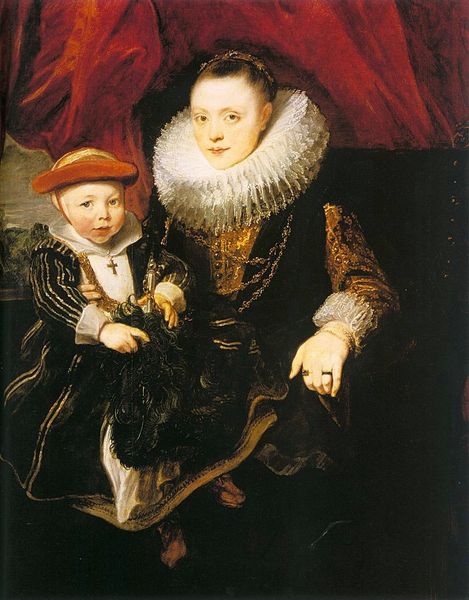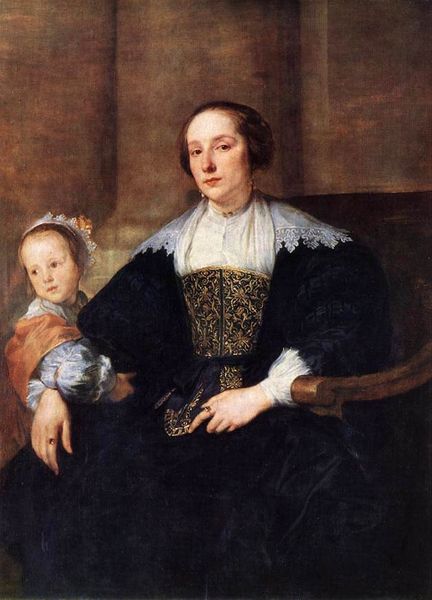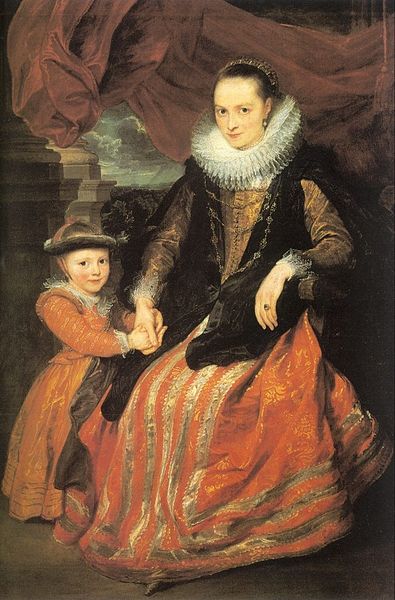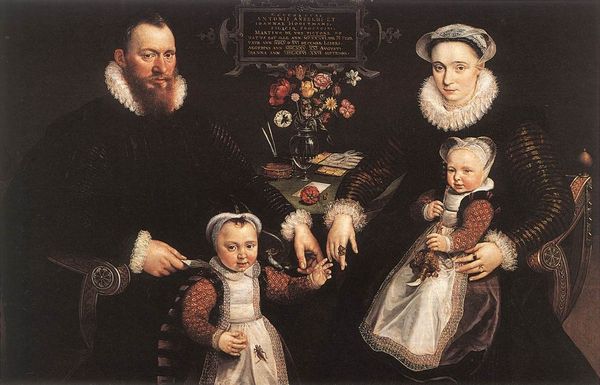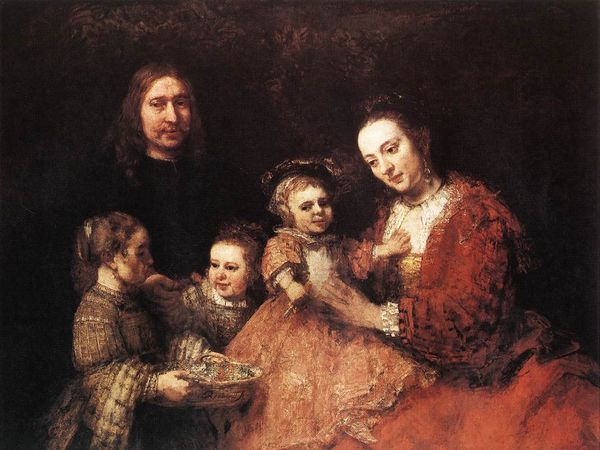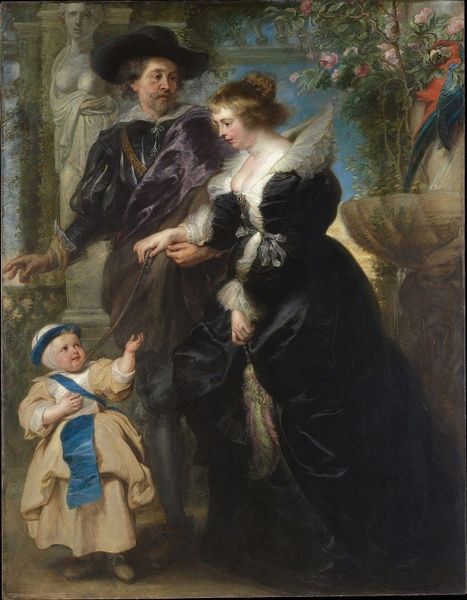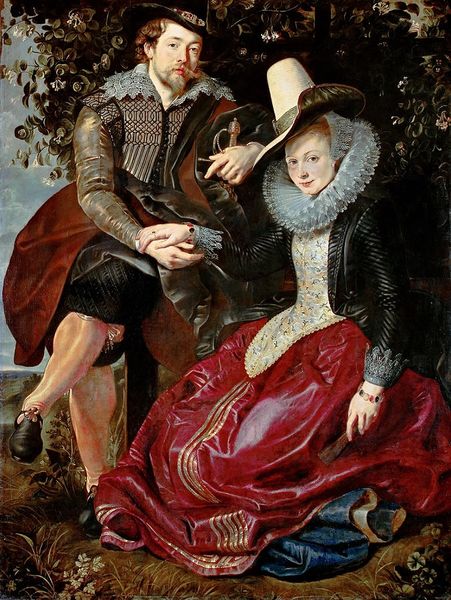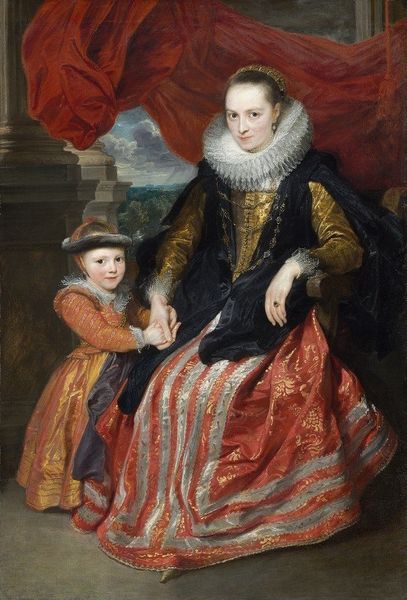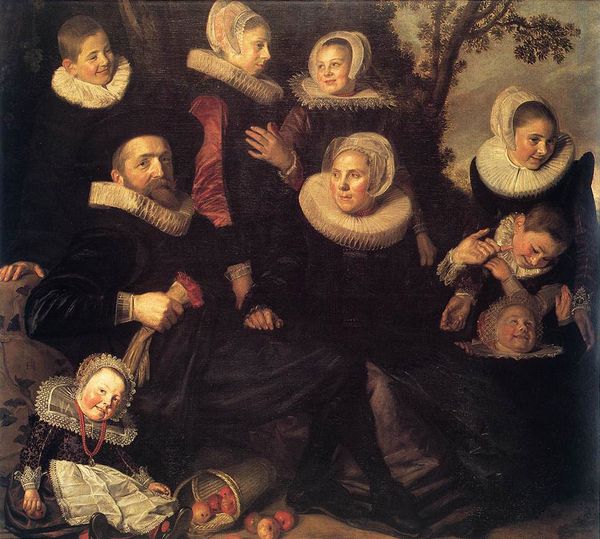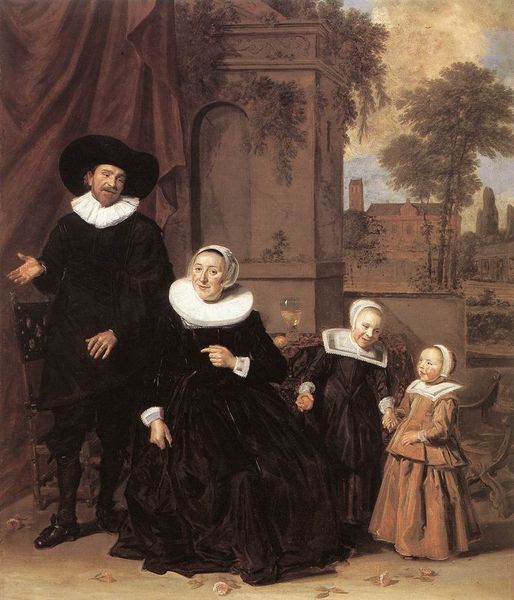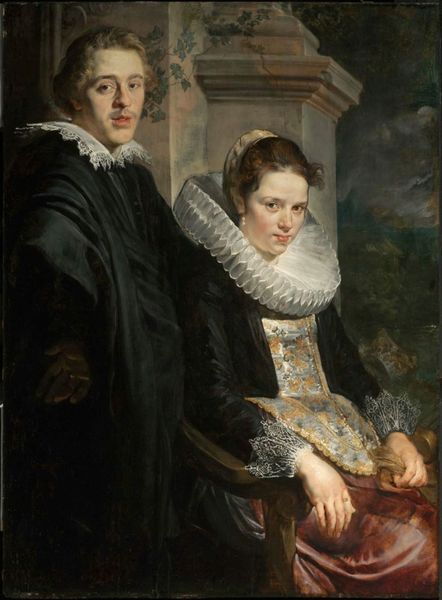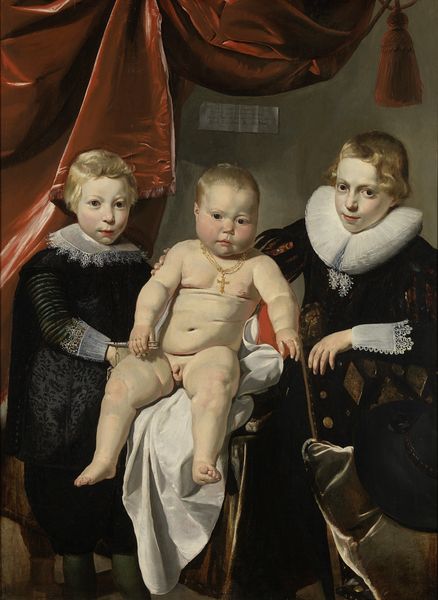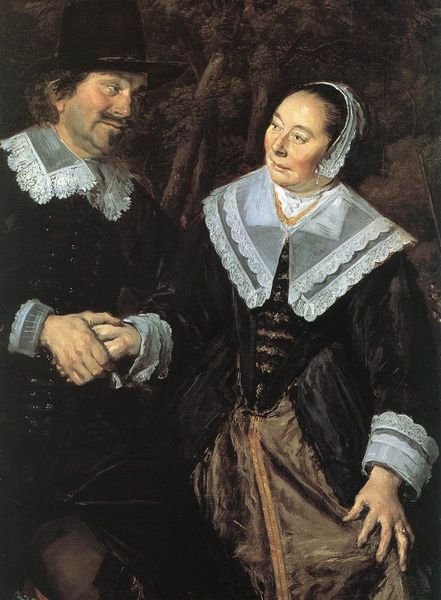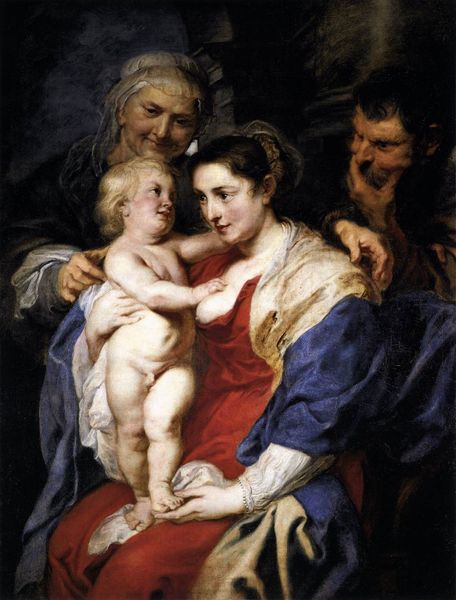
painting, oil-paint
#
portrait
#
baroque
#
painting
#
oil-paint
#
oil painting
#
genre-painting
Dimensions: 93.5 x 113 cm
Copyright: Public domain
Editor: We’re looking at Anthony van Dyck’s "Family Portrait" from 1621, an oil painting housed at the Hermitage Museum. There's a formality to it, a sense of reserved intimacy. I’m curious, what do you see as the most compelling aspect of its composition? Curator: The interplay of light and shadow is strategically deployed. Observe the sharp contrast highlighting the intricate lace collars against the somber attire. How does this deliberate arrangement guide your eye? Editor: It certainly draws my attention to their faces, the areas with the most detail. Is this strategic contrast common in Baroque portraiture? Curator: Indeed. It is not merely representational; rather, it evokes depth and volume. Note how the texture of the fabrics is meticulously rendered, creating a tactile illusion. Does the geometric construction of the collars impose on the subjects’ humanity, do you think? Editor: I see what you mean. They’re almost like architectural elements, framing the faces and adding to the overall structured feel of the painting. But maybe also creating a sort of status symbol? Curator: Precisely. It’s a study in contrasts: the rigid societal conventions against the subtle nuances of human expression, all interwoven to give a lasting composition and create emotional appeal. Editor: So, beyond being a record, it's also an aesthetic arrangement? It has certainly taught me how visual components contribute towards symbolic meanings, and its influence within societal contexts. Curator: A profitable exploration. By recognizing formal decisions within such structured boundaries, we find Van Dyck delivers a powerful observation about people and position.
Comments
No comments
Be the first to comment and join the conversation on the ultimate creative platform.
